
We are pleased to welcome our Summer Undergraduate Research Fellowship (SURF) students for an exciting summer of research.

We are pleased to welcome our Summer Undergraduate Research Fellowship (SURF) students for an exciting summer of research.
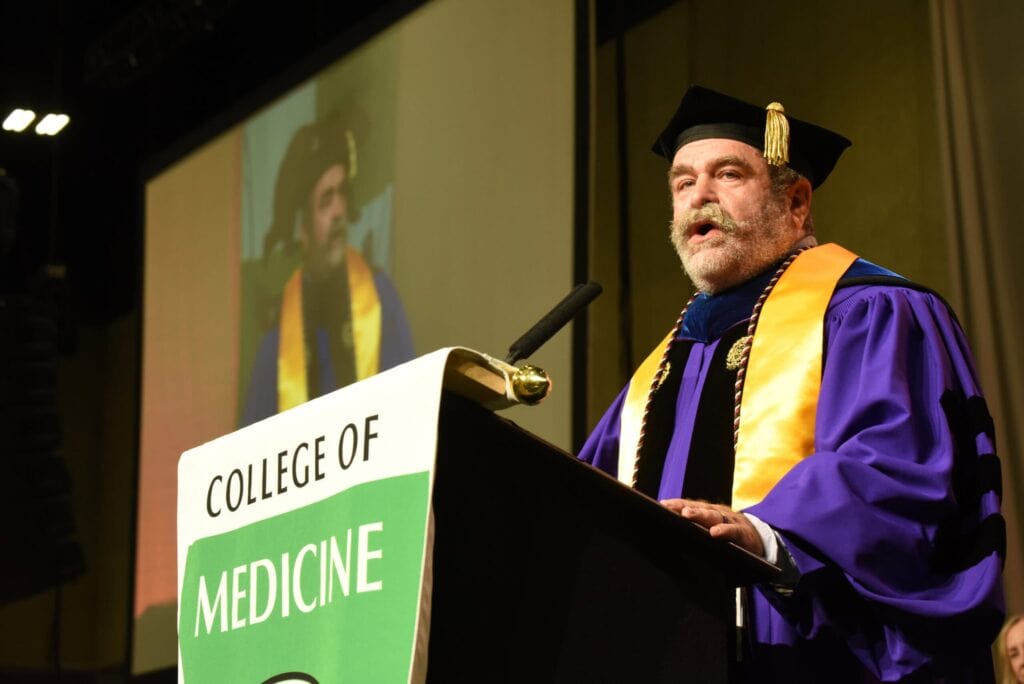
By Linda Satter
The College of Medicine Class of 2024 class chose Alan Diekman, Ph.D., a professor of biochemistry and molecular biology, to deliver the faculty address at the honors convocation, and Diekman used the opportunity to inject some humor into the otherwise weighty ceremony.
He recalled an incident that occurred during the COVID-19 pandemic, which resulted in his three-hour classes about biochemistry and endocrinology being held virtually for nine weeks in the graduating students’ first year and five weeks in their second year.
“Often, I told my colleagues that I felt that I was presenting a morning TV talk show,” Diekman said. “We were physically isolated, but we caught glimpses of each other in our homes, maybe with family members or pets.”
Meanwhile, he said, “the chat function, which permitted a level of discourse that would not happen if we were meeting in person, was always very active in class.”
He said it was through that function that “one of your classmates gave me some of the best advice I have ever received.”
Diekman said he can’t remember the subject on which he was pontificating — “let’s pretend it was an erudite exposition on glycolysis, in which I believe I twice used the word ‘behoove’” — when a chat message popped up that had been shared to the entire class. It said, “Calm down, Alan.”
As he repeated the phrase and ripples of laughter filled the hall, Diekman recalled that “I was momentarily speechless — not because I was told to calm down or because I was addressed by my first name, but because of how hysterically funny I thought it was.”
“I knew humor was the intent — I wasn’t upset,” he clarified. “I suspect some of you were also astonished when you saw that chat message, and I still laugh thinking about it. It’s one of my favorite stories to tell of my experiences as an educator.”
Eric Porter, a class favorite, is congratulated onstage. His peers gave him the Leonard Tow Humanism in Medicine Award, which recognizes compassion in the delivery of medical care.
But his reason for sharing it, he said, is that “it is a memory of your class that I hold dear, and I realized it was some of the best advice anyone could receive during a pandemic. Calm down, Alan. It reminds me of the poster, ‘Keep Calm and Carry On,’ and that’s what you did.”
Diekman said that to carry on during a pandemic, the class had to be resilient, adaptable and self-reliant. He said the classmates’ presence years later at the honors convocation proved that they had those attributes, which will serve them well in their medical careers.
“But being self-reliant doesn’t always mean going in alone,” he said. “You need to be honest about yourself regarding your abilities and your physical and mental limitations,” which includes not being afraid to call in a more experienced physician when needed.
“It will behoove you to remember you are resilient, you are adaptable, and you are self-reliant,” he said.
Then, as a grin spread across his face, he said, “I’ve been waiting to say this for three years: Calm down, Connor.”
With a nod to Connor Roset, the class representative who will soon begin an emergency medicine residency at UAMS (and who agreed beforehand to be mentioned in Diekman’s address), he stepped away from the microphone to hearty applause.

Congratulations to Kirk West, Ph.D., on his award for Outstanding Poster Presentation at the Winthrop P. Rockefeller Cancer Institute retreat. Kirk is mentored by Kevin Raney, Ph.D.
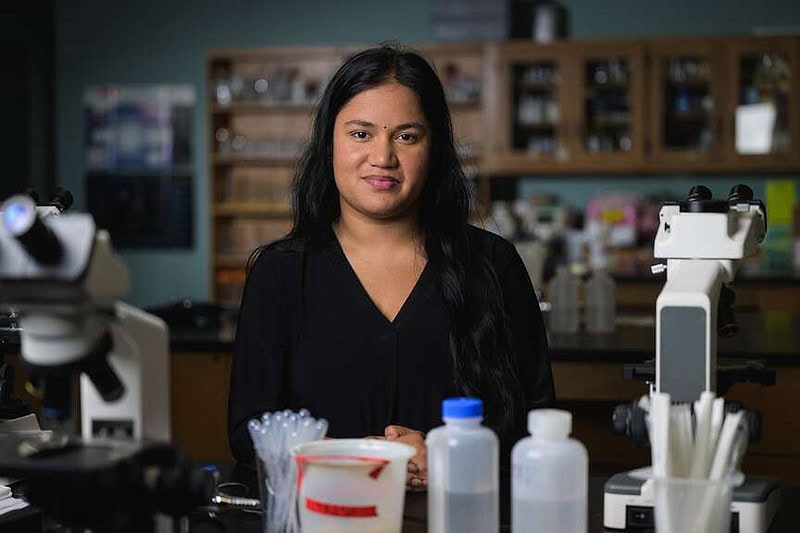
Aarohi Sonputri, a high school student at the Arkansas School for Mathematics, Science and the Arts was featured in an article in the Arkansas Democrat Gazette. Aarohi performed her Capstone research project in the lab of Samantha Kendrick, Ph.D., under the supervision of graduate student Kennith Swafford.

Brian Koss, PhD is an Assistant Professor in the Department of Biochemistry and Molecular Biology at UAMS, Little Rock, Arkansas. The primary focus of his research program is to develop therapies that leverage the patients’ immune system to control cancer progression.
A Mountain Home, AR native, Koss completed his undergraduate degree in biochemistry and molecular biology at Hendrix, where he got his first exposure to undergraduate research working Dr. Rick Murray. Cancer became real to Koss when he worked as a research technician at St. Jude Children’s Hospital in Memphis after college. He returned to Arkansas in 2016 to begin graduate studies under the mentorship of Dr. Alan Tackett (‘98) at UAMS and earned a Ph.D. in 2020 supported by a prestigious fellowship from the National Cancer Institute (NCI).
Shortly after earning his PhD, Dr. Koss was awarded the National Institutes of Health (NIH) Director’s Early Independence Award. Part of the High-Risk, High-Reward Research program, the Early Independence Award supports outstanding junior scientists with the intellect, scientific creativity, drive and maturity to bypass the traditional postdoctoral training period to launch independent research careers. In addition to being the first Arkansan to receive the award, Koss is only the second recipient from an NIH-designated Institutional Development Award (IDeA) state, a group of 23 states plus Puerto Rico that have historically received lower research funding. He received a five-year, nearly $2 million grant to fund his highly specialized cancer research program at UAMS.
With more than 20 publications, Koss’ work has been published in many highly respectable scientific journals such as, Cancer Research, Blood, Nature Cell Biology, and Immunity. In addition to cutting edge research Koss is currently mentoring two MD/PhD students, one PhD student, and a postdoctoral fellow.
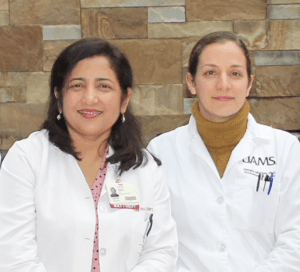
Rescue of Methionine Dependence by Cobalamin in a Human Colorectal Cancer Cell Line.
Garg S, Miousse IR.
Nutrients. 2024

Congratulations to Susie Brown, Ph.D. who successfully defended her dissertation entitled, “Discovery, Characterization, and Therapeutic Potential of G-quadruplex and i-Motif Structures in the Promoter of the MYD88 Oncogene.” She was mentored by Samantha Kendrick, Ph.D. Dr. Brown will be an Adjunct Assistant Professor of Microbiology at Henderson State University.
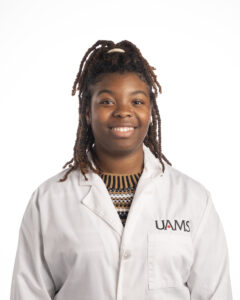
Congratulations to LaTambria “Bria” Hampton on the successful defense of her Master’s Thesis entitled “CD28 signaling upregulates phosphoenolpyruvate carboxykinase-2 (PCK2) to maintain T cell metabolic fitness.” Bria was mentored by Brian Koss, Ph.D., and Analiz Rodriguez, M.D.,Ph.D. Bria is a now a Clinical Research Coordinator at Arkansas Children’s Hospital focusing on cardiology and emergency department (trauma) studies.
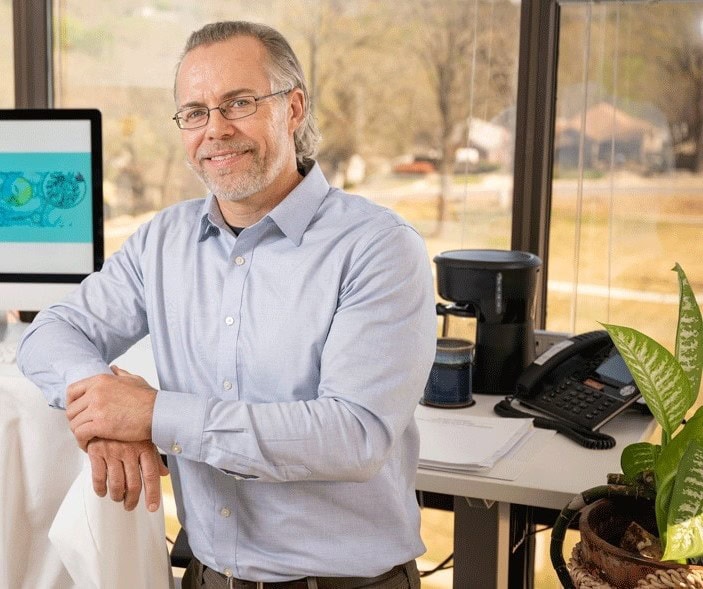
Robert Eoff, Ph.D. was awarded the 2023-2024 Graduate Faculty Award for his excellent work mentoring students in his own lab and throughout the Biochemistry and Molecular Biology Track. Congratulations Dr. Eoff!
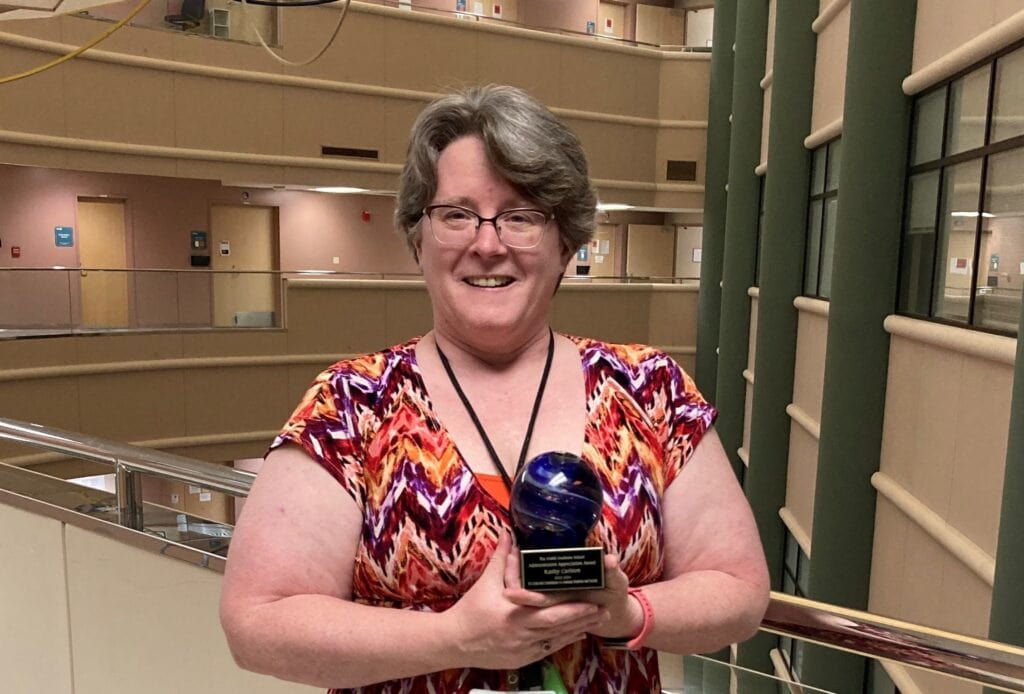
Kathy Carlson was awarded the UAMS Graduate School Administrative Appreciation Award for 2023-2024 for her dedicated commitment to graduate students and faculty. Kathy is the education coordinator for the Biochemistry and Molecular Biology Department. Congratulations!
